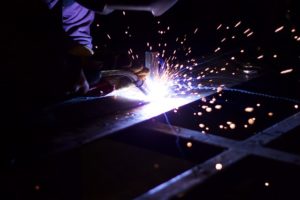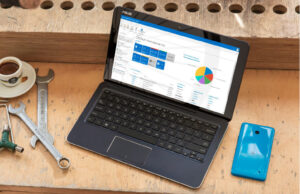
Which ERP Is Best for Manufacturing?
The marketplace is booming and you are feeling the pressure to increase manufacturing operations to keep pace with customer demands. You need technology that can support growth, and you might be wondering which ERP is best for manufacturing? While manufacturers do share certain things in common, there are also unique processes that differentiate your company from your competition. Here are tips for determining which ERP is best for YOUR manufacturing operations.
Not All ERP Is Suitable for Manufacturers
Manufacturing operations vary from facility to facility, producing different products and delivering a variety of services. With that can come changes in tax obligations, payroll and benefits, governmental or regulatory obligations and the list goes on.
While there are business processes that many manufacturers have in common, there are many more that are unique. The same holds true for ERP systems. Today’s ERP solutions are varied in features and functions and not all ERP is suitable for manufacturers. Choosing the right one is essential for supporting your business operations, as well as positioning your business for growth.
How to Choose the Best ERP System for Your Manufacturing Business
Unfortunately, you can’t run to the store and pick up a one-size-fits-all ERP solution for manufacturers off the shelf. Choosing the best ERP system can be tough and can be a time-consuming process. Here are several questions you should ask as you begin your quest:
- What do we do now? Gather a team of key leaders and employees representing a cross-section of your organization. Begin to outline what you do and how you do it. Do you utilize process manufacturing, discrete manufacturing or both? Do you make to order, to specification, to stock or a combination of these options? Discuss financial processes, manufacturing operations, inventory and supplier activities and customer demands.
- What do we use to capture data? Outline the software and systems you use to capture, access and analyze data. You may use a combination of business software, spreadsheets and paper-based systems. You may also have standard operating procedures and policies in place to guide employees through certain tasks. Identify where data is stored, how it’s accessed and used.
- What are the weaknesses of current systems? As you discuss the software and systems you have in place, outline points of friction or gaps. You may find redundancies with data entry or other repetitive tasks. Are your leaders able to access data fast enough, and is that data current and reliable? By identifying these weaknesses, you will be able to resolve them with ERP.
- What do we need to know? Real-time, accurate data is mandatory for managing all aspects of your business from finances to inventory to customer service and delivery. Identify the key performance indicators (KPIs) you use and other ways you need to measure and monitor performance to ensure your ERP system can deliver the insight and reporting you need.
- What does our future look like? Discuss strategic plans for growth and anticipated changes to manufacturing operations, products, demographics and other opportunities. Your business will likely experience changes due to economic and marketplace conditions, product and customer trends, and potential expansion and acquisitions. The right ERP solution will support your operations today and be flexible enough to scale as your business changes over time.
How Do We Know Our ERP Choice Is the Right One?
After gathering the information discussed above, choose a software provider to guide you through the rest of this process. Meet with vendors that are familiar with your type of manufacturing business and any unique processes that set you apart from other manufacturers. Ask for case studies and information about the ERP systems that similar manufacturers have deployed. Discuss ERP functionality, requirements, implementation, training and support and make sure the technology AND the solutions provider is able to provide everything you need throughout your journey and beyond.
Contact The Wolcott Group for more information about ERP solutions for manufacturing.




